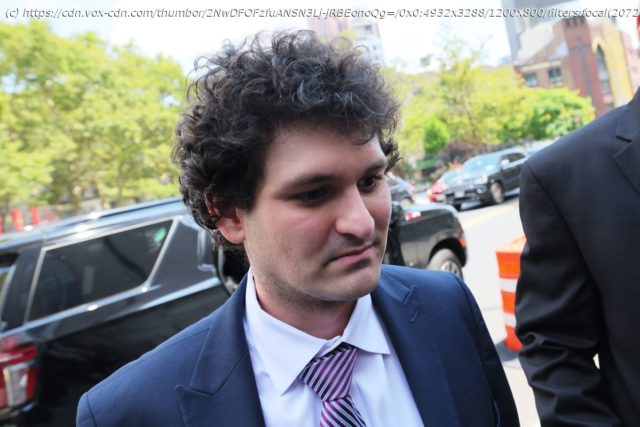SBF, the convicted founder of the crypto exchange FTX, will be sentenced on Thursday. Here’s how he compares to Bernie Madoff, Theranos’s Elizabeth Holmes, Allen Stanford, and Enron’s Jeffrey Skilling.
Sam Bankman-Fried, the founder of the defunct crypto exchange FTX who was convicted on fraud and conspiracy charges last year, will be sentenced Thursday in New York court.
Prosecutors are seeking a 40- to 50-year sentence for his role in defrauding investors of billions of dollars. Yes, billions. That sentence would still be well below the maximum statutory sentence of 115 years, but his attorneys are arguing that it should be no longer than six-and-a-half years and that he also should not be ordered to pay any restitution or forfeit any assets.
His trio of co-conspirators Caroline Ellison, Gary Wang, and Nishad Singh — all members of SBF’s inner circle and executives at FTX or Alameda Research (its sister hedge fund also co-founded by Bankman-Fried) — cooperated with prosecutors to testify against Bankman-Fried at trial. They may face minimal, if any, prison time.
The judge in the case, US District Judge Lewis Kaplan, is likely to consider a few factors in determining Bankman-Fried’s sentence, including his age, the scale of the losses, and the government’s interest in deterring him and anyone else from committing similar crimes. That last point is a big one, said Jennifer Taub, a professor at Western New England University School of Law focusing on white-collar crime.
“The white, wealthy, and well-connected tend to wiggle their way out of facing the criminal consequences for their predatory behavior,” she said. “It’s high time that we actually hold white-collar criminals accountable.”
While Bankman-Fried’s lawyers have sought to downplay the harm caused by the scheme that led to FTX and Alameda’s downfall, prosecutors have likened his crimes to that of Bernie Madoff, the infamous Wall Street financier who orchestrated history’s largest Ponzi scheme.
“No scheme to defraud since Madoff can be compared to this one in terms of its size, scope, and amount of loss,” prosecutors argued in court filings.
So how does SBF’s possible sentence likely stack up against other big fraud cases this century?
Let’s take a look. But first, a recap of what went down with FTX
SBF’s fall from grace was excruciatingly abrupt.
As my colleague Sean Illing wrote, “Before he was charged, SBF was widely seen as a benevolent genius, some kind of digital-era Robin Hood, who was going to make obscene amounts of money and then give it all away to worthy causes.” (Disclosure: In August 2022, Bankman-Fried’s philanthropic family foundation, Building a Stronger Future, awarded Vox’s Future Perfect a grant for a 2023 reporting project. That project was canceled.)
To back up: In 2019, Bankman-Fried founded FTX, at one point the third largest crypto exchange, and rode a crypto boom for a few years. Through the next few years, he went around espousing a particular version of effective altruism — a utilitarian movement that describes itself as “using evidence and reason to figure out how to benefit others as much as possible” — that entailed earning as much as possible to purportedly give away as much as possible. He also grew his political influence, becoming one of President Joe Biden’s biggest donors in 2020.
But in 2022, a balance sheet for Alameda was leaked that implied his whole crypto empire was built on double-dipping.
Without getting too in the weeds, essentially the balance sheet showed that Alameda had large holdings of FTX’s proprietary digital currency FTT, which had questionable value at a time when crypto prices were spiraling downward. If those digital tokens’ value plummeted, FTX’s financial solvency would be severely in doubt.
Investors withdrew their holdings in FTT in large numbers, revealing an $8 billion gap in what FTX could pay out and what it owed customers. It then became apparent that FTX had transferred customer funds to Alameda and that the two firms were far more entangled than Bankman-Fried had previously disclosed or that was allowed under their terms of service. Both FTX and Alameda declared bankruptcy that fall.
Start
United States
USA — mix How Sam Bankman-Fried’s possible sentence stacks up against the century’s biggest fraudsters






